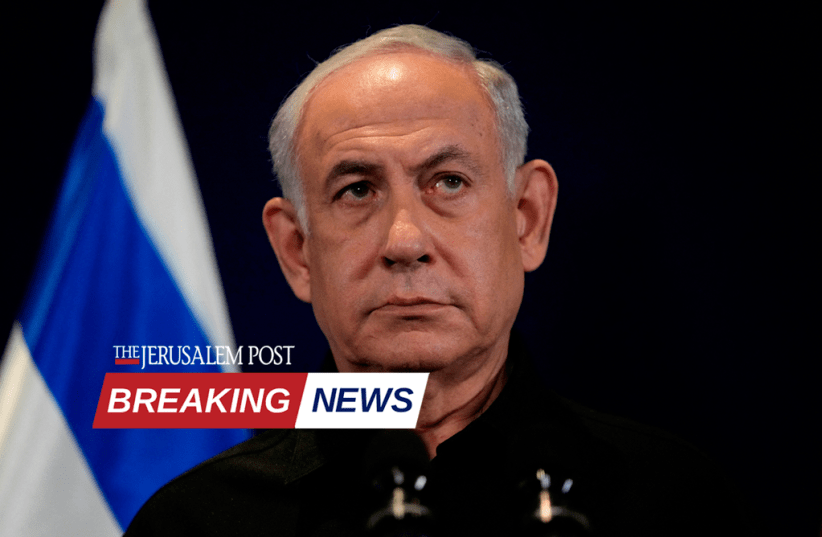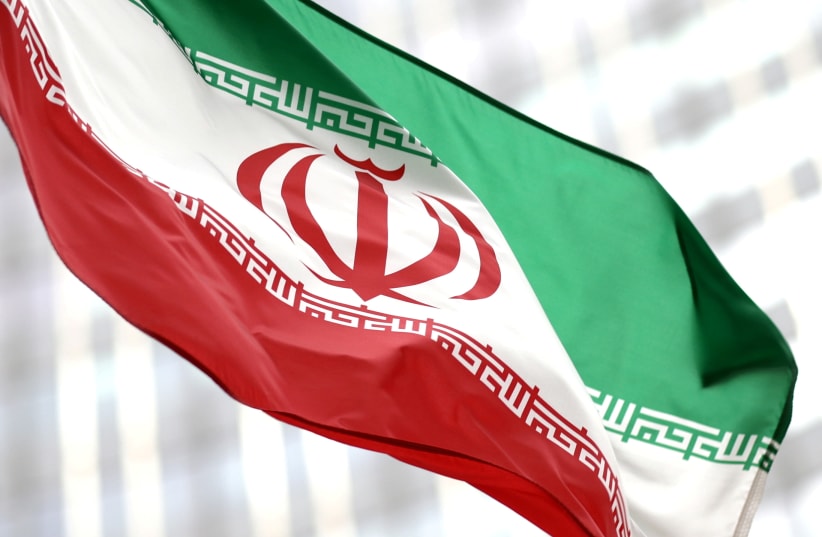Israel strikes Iran military targets in Operation Days of Repentance
Israel strikes across Iran • Biden tells Iran not to retaliate to Israel strikes

Netanyahu says Israel chose targets in Iran based on its national interests

Israeli Prime Minister Benjamin Netanyahu said on Saturday that Israel had chosen the targets it attacked in Iran based on its national interests, not according to what was dictated by the United States.
Netanyahu's office issued the statement in response to what it referred to as a "completely false" local television report that Israel had avoided striking Iranian gas and oil facilities because of US pressure.
Go to the full article >>
Hamas-Al-Jazeera-Qatar ties exposed in new IDF documents, online eulogies
New documents formulated by Hamas reveal the depth of Al Jazeera's cooperation with the terrorist group.

Following the exposure of the involvement of six Al Jazeera correspondents who took part in Hamas’s terrorist activities, the IDF spokesperson in Arabic, Col. Avichay Adraee, revealed a series of documents that point to the depth of the close cooperation between Hamas and the Qatari channel, including Hamas’s directive to prevent any mention of criticism of the terrorist organization, through covering up failed rocket launches, and even the establishment of a secure communication line between Hamas and Al Jazeera.
Go to the full article >>'Backbone of Iran's missile industry' destroyed by IAF strikes on Islamic Republic - reports
The targets struck were sophisticated equipment that Iran could not produce on its own.

The Israel Air Force struck a dozen targets in Iran that were used to produce solid fuel for long-range ballistic missiles as part of its retaliatory military action against the Islamic Republic, severely harming Tehran's ability to replenish its inventory, Israeli media reported on Saturday night.
The targets struck were sophisticated equipment that Iran could not produce on its own and had to be purchased from China, Walla reported. The targets were a critical component of Iran's ballistic missile program, Walla cited three anonymous Israeli sources as saying.
Go to the full article >>Home Front Command allows students to return to studies in North in new guidelines

The IDF's Home Front Command has eased its directives, allowing citizens to return to workplaces and educational institutions in the northern areas of Israel.
The Home Front Command stated that workplace and educational activities may be held "in a place from which a standard protected space can be reached within the time available to reach shelter. "
Directives have eased in the northern and southern Golan Heights, the Upper, Center, and Lower Galilee region, Haifa, and Kiryat Bialik, among other localities.
Additionally, gatherings outdoors are limited to 100 people and 350 people indoors in the North.
The area's beaches are still closed. In areas such as the Gush Dan and Sharon, gatherings can be held for up to 2,000 people.
Go to the full article >>Qatar PM expresses 'grave concern' over possible consequences of Israeli strikes on Iran

Qatar's Prime Minister and Foreign Minister Sheikh Mohammed bin Abdulrahman Al Thani, during a call with Iranian Foreign Minister Abbas Araqchi, expressed his country's "grave concern" over possible consequences of Israeli strikes on Iran, the Qatari foreign ministry said in a statement on Saturday.
Go to the full article >>Iran's mission to UN says Israeli warplanes attacked Iran from Iraqi airspace

Israeli warplanes attacked Iran from Iraqi airspace, Iran's mission to the UN said on Saturday, blaming the United States for what it called its complicity.
"Iraqi airspace is under the occupation, command and control of the US military. Conclusion: The US complicity in this crime is certain," the Iran UN mission said in a post on X.
Go to the full article >>LISTEN: Radio communications from the moments after the IAF struck military targets in Iran
‘No enemy is beyond reach’: Air force chief commends pilots after Iran strikes
The exchange, captured in an audio recording between Bar and IAF pilot Lt. Col. S, was published by the IDF on Saturday evening.

Israel Air Force Commander Maj.-Gen. Tomer Bar congratulated and thanked the air force pilots after they successfully struck military targets in the Islamic Republic of Iran overnight.
The exchange, captured in an audio recording between Bar and IAF pilot Lt. Col. S, was published by the IDF on Saturday evening.
Go to the full article >>Itamar Ben-Gvir: 'Attack on Iran is an opening blow'

National Security Minister Itamar Ben-Gvir said that Israel should follow up on its Friday night strikes on Iranian military targets in a Saturday evening post on X/Twitter.
"The attack on Iran is important as an opening blow to damage Iran's strategic assets, and this must be the next step," Ben-Gvir wrote.
התקיפה באיראן חשובה כמכת פתיחה לפגיעה בנכסים האסטרטגיים של איראן, וזה חייב להיות השלב הבא. זו עמדתי ואמשיך להציג אותה בפורומים הרלוונטיים. יש לנו חובה היסטורית להסיר את האיום האיראני להשמיד את ישראל.
— איתמר בן גביר (@itamarbengvir) October 26, 2024
"This is my position, and I will continue to present it. We have a historical obligation to remove the Iranian threat that wishes to destroy Israel."
Go to the full article >>80-year-old woman dies after tripping on steps while trying to evacuate to bomb shelter

An 80-year-old woman was pronounced dead by MDA paramedics on Saturday evening after she tripped and fell on the stairs on the way to a bomb shelter following rocket sirens sounding in Beit HaEmek in the Upper Galilee, Israeli media reported.
Go to the full article >>Israel at war: What you need to know
- Hamas launched a massive attack on October 7, with thousands of terrorists infiltrating from the Gaza border and taking some 240 hostages into Gaza.
- Over 1,200 Israelis and foreign nationals were murdered, including over 350 at the Re'im music festival and hundreds of Israeli civilians across Gaza border communities
- 101 hostages remain in Gaza
- 48 hostages in total have been killed in captivity, IDF says